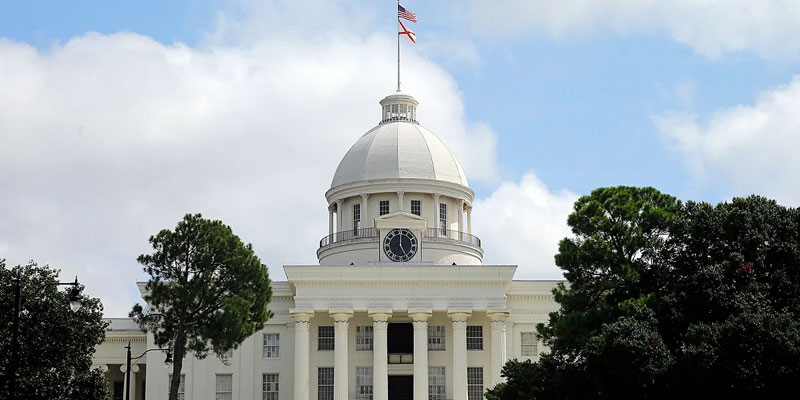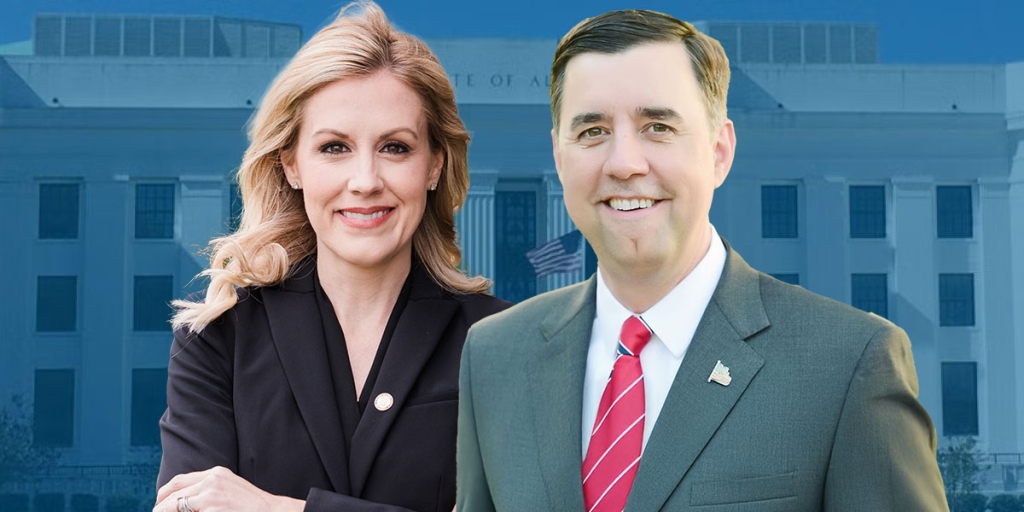State of Alabama revenues reached an all-time high in the midst of the pandemic, with $12.2 billion collected in 2020, an increase of more than $2.3 billion from five years ago, state officials said in a report released this week.
“No doubt, 2020 has offered its share of challenges, but the department uncovered many opportunities as well,” Department of Revenue Commissioner Vernon Barnett wrote in a cover letter to Alabama Gov. Kay Ivey. “Thanks to your continued leadership and support and the hard work of so many dedicated department employees, we’ve successfully navigated the rough waters, full steam ahead, ensuring that the essential work of the department continued despite the challenges posed by the coronavirus (COVID-19) pandemic.”
Income tax accounted for 48% ($4.9 billion) of 2020 revenues. Sales taxes comprised 38%, business and license taxes 9%, property taxes 4% and motor vehicle fees 1%, Barnett’s report said. Individual tax returns totaled 2,139,463, of which 1,877,239 were filed online and 1,193,337 were sent by a paid preparer, the report said. About 1.3 million taxpayers itemized deductions. Individual refunds were issued to 1,155,558 Alabamians for a total of $662,541,121, or about $570 each. Delinquent collections hit a record $131 million.
Nearly 16,000 taxpayers contributed to nonprofit organizations through the Alabama tax return checkoff system, sending $221,380 to 19 organizations, with the highest amounts going to the Child Abuse Trust Fund at $26,093 and the Alabama Veterans Program at $24,803. No other group topped $20,000. The Archives Services Fund was the low performer, receiving a total of $15 from three contributors. Checkoff donations yielding less than $7,500 annually for three consecutive years are removed from the list.
Political contributions were made through checkoffs by 19,384 taxpayers, with 11,298 giving a total of $15,915 to the Republican Party and 8,086 giving $9,917 to the state Democratic Party.
Property tax collections in 2020 totaled $3.1 billion and were highest in Jefferson County at $788 million, followed by Mobile County at $306 million, Madison at $263 million, Shelby at $198 million and Baldwin County at $167 million.
Sales tax collections were a record $2.5 billion, up about $50 million from 2019. The 197 local sales, use, rental and lodgings taxes are collected from 160 localities, the report said.
Business and license tax collections surpassed $1 billion for the first time, breaking the 2018 record by about $92 million. The biggest differences came in diesel and gasoline increases, which accounted for about $165 million more than in 2019. Business licenses issued statewide fell to 227,343 in 2020, the least since 2016, but fees collected were the third-highest, behind 2018 and 2016.
Among the many records broken in the past year, the Department of Revenue collected $11.2 billion of the $12.2 billion electronically.
“The department quickly and fully embraced the changes needed to collect, account for and distribute record revenue collections,” Barnett said. “We implemented sweeping upgrades to our IT systems and communications infrastructure, and we enhanced our audit activities and taxpayer support platforms to safely ensure uninterrupted and more effective operations.”
The utility gross receipts tax levied on all companies furnishing electricity, water, gas, telephone or telegraph services garnered a record $420 million. The tax is calculated based on gross sales, at 4% for receipts of $40,000 or less and $2,200 plus 2% of excess over $60,000 for companies having over $60,000 in sales. For telephone companies the state tax is 6% of gross sales. The report said $14.6 million was distributed to the Special Mental Health Trust Fund and the remainder of the tax revenue went to the Education Trust Fund.
The Tennessee Valley Authority makes annual payments to the state in lieu of taxes, which amounts to 5% of gross revenues on power sales. The 2020 distribution to the state general fund was $14.9 million and the 16 counties served by the TVA in north Alabama will share allotments from a total of $72.6 million.
Cigarette tax collections were down for the first time in five years, falling to $162 million, nearly $20 million below 2016.
The business privilege tax for companies to do business in Alabama brought in a record amount of nearly $150 million. It is a graduated rate based on a company’s federal taxable income, ranging from 25 cents to $1.75 for each $1,000 of net worth. The minimum tax is $100 and maximum for most companies is $15,000, although financial and insurance companies are subject to a maximum $3 million.
The financial institution excise tax brought in $150 million, of which $74 million was distributed to the state General Fund, cities and counties, which was a drop from the $81 million distributed in 2019.
Ivey on March 23, 2020, declared a state of emergency that allowed the Department of Revenue to provide relief to taxpayers, extending filing deadlines until July 15. The department sent 275,000 emails to businesses describing the steps to apply for Paycheck Protection Program loans and opened a Revive Alabama hotline and webpage to assist.
“Working with your Revive Alabama grant program, we distributed more than $96 million in funding for small businesses that have suffered financially as a result of the pandemic,” Barnett wrote to Ivey. “These and many other successes have helped in the effort to ease hardships experienced by so many of our fellow citizens during the course of the pandemic.”
(Courtesy of Alabama NewsCenter)













